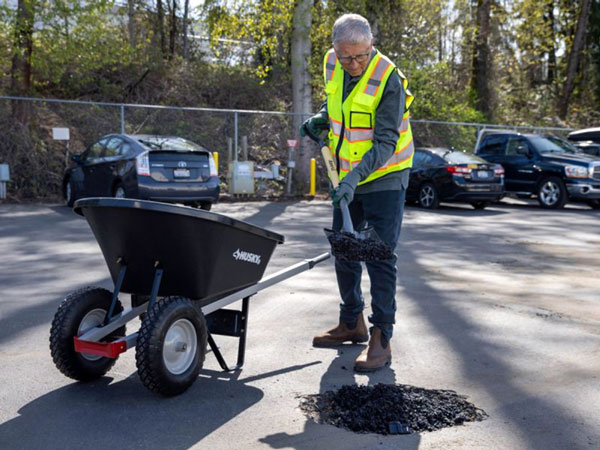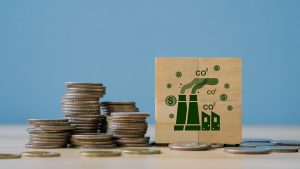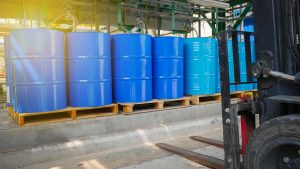Bill Gates is at it again. The billionaire philanthropist, investor and co-founder of Microsoft is bold when expressing his concerns about the global environment.
He even wrote a book in 2021 titled How to Avoid a Climate Disaster, in which he outlines what he believes needs to be done.
“I wrote How to Avoid a Climate Disaster because I think we’re at a crucial moment. I’ve seen exciting progress in the more than 15 years that I’ve been learning about energy and climate change,” he at the time of publication.
Gates does more than talk the talk. He’s made considerable investments in technologies through his venture fund that are directed towards cleaning up energy production and reducing GHG emissions.
Gates may have looked a little awkward pushing a wheelbarrow and shovelling out asphalt into a pothole during a recent visit to his start-up firmn, based in Seattle, Wash. However, he is very comfortable using his wealth to support important environmental initiatives.
One of his earliest investments in construction was Canadian company, founded in 2012 in Dartmouth, N.S.
CarbonCure drew world attention in 2019 when Gates and fellow billionaire investors Jeff Bezos, Michael Bloomberg and Sir Richard Branson stepped up with funding that has turned CarbonCure into a leading name in carbon capture for use in concrete production.

Now Gates has turned his head towards pavement. Modern Hydrogen is using its green hydrogen technology to produce low-emission asphalt for road paving and repairs.
Modern Hydrogen got its start back in 2015. Gates and former Microsoft researcher Nathan Myhrvold put money into the firm at a time when it was focused on capturing waste heat from furnaces and hot water heaters and turning it into electricity. The 60-employee company has raised $100 million in total venture capital from Gates, Myhrvold and others.
Modern Hydrogen later developed a methane pyrolysis reactor that strips carbon from natural gas (methane) right at the meter, or from fossil fuels or biogas from sources like manure and produces pure hydrogen fuel that releases only water vapour as a byproduct.
It can also produce a solid carbon that can be a key ingredient in asphalt.
The solid carbon produced requires no extra processing for incorporation into asphalt. It replaces the typical bitumen used to bind the sand and gravel. This results in reduced GHGs, locked-in carbon and overall money savings. The sealer pigment of the material is also regarded as enhancing its visual appeal.
The product is called . Pilot projects are underway around the United States to observe its real-life performance characteristics, both in hot-mix and cold-mix applications.
Asphalt is as ubiquitous as concrete. Ninety-four per cent of roads in the United States and 70 per cent of roads worldwide are paved with asphalt.
It is also highly recyclable.
Studies indicate about 22 per cent of recycled asphalt is currently replacing virgin materials, although as much as 40 per cent is possible under existing plant capacities. Modern Asphalt adds to the environmental benefits of recycling by reducing carbon emissions by as much as 20 per cent.
Numerous industry-recognized tests at the University of Wisconsin’s Modified Asphalt Research Center. Research was aimed at demonstrating the potential of Modern Asphalt to act as a binder extender.
Significant enhancements to asphalt binder performance were revealed during the study, particularly the material’s capability to strengthen binder resilience at elevated temperatures. Low “dosages” of Modern Asphalt also proved encouraging in cold climate simulations. Workability was judged excellent, even at reduced mixing temperatures.
All of this points to a bright future for Modern Asphalt and the development of a more sustainable construction lifecycle.
The study concludes Modern Asphalt’s ability to lower CO2 emissions and reduce energy consumption during production places it at the forefront of sustainable building materials. It literally “paves the way for a future where infrastructure development harmonizes with responsible environmental practice.”
John Bleasby is a Coldwater, Ont.-based freelance writer. Send comments and Inside Innovation column ideas to editor@dailycommercialnews.com.











Recent Comments
comments for this post are closed